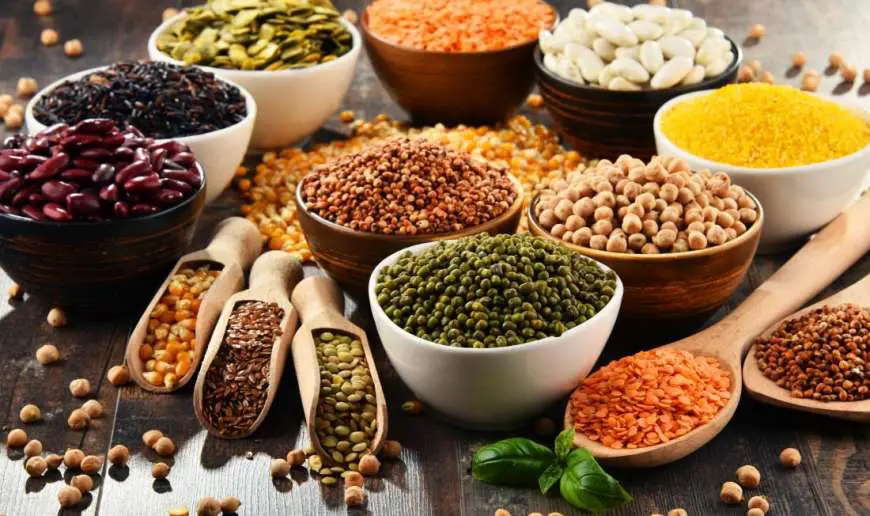Which foods cause gas and bloating?

Excessive gas and bloating can sometimes indicate an underlying health problem, they often occur due to the foods that people eat. Knowing which foods trigger gas and bloating can help a person reduce flatulence.
Gas and bloating affect about everyone at some point in time. piece passing gas and belching are natural shipway for the body to get rid of excess air that gets at bay in the gut, excessive gassiness can sometimes be embarrassing and painful.
Foods and drinks that can cause gas include:
- beans
- broccoli
- wheat
- onions
- garlic
- dairy farm products
- sugar alcohols
- fizzing drinks
- beer
- chew gum
- hard candy
- fatty foods
In this article, we look at why these foods cause gas and examine the steps that people can take to reduce flatulence.
Foods that can cause gas
The foods that can cause gas often contain substances that have one of the following characteristics:
- hard to break down
- produce gas when the body breaks them down
- cause the person to swallow air piece feeding
Beans and legumes
Beans and some other legumes, so much as peas and lentils, have a reputation for causation gas.
Beans contain high amounts of a complex sugar called trisaccharide, which the body has trouble breakage down. Beans are besides rich in fiber, and a high intake of fiber can increase gassiness.
However, not all legumes increase flatulence equally. A 2011 study found that people who ate baked beans and horse beans were more likely to notice accrued gassiness than people who ate black-eyed peas.
Broccoli and other dilleniid dicot family vegetables
Like beans and legumes, broccoli and other dilleniid dicot family vegetables contain large amounts of trisaccharide and fiber.
Other dilleniid dicot family vegetables that contain trisaccharide and have a high fiber content include:
- cauliflower
- Brussels sprouts
- cabbage
- asparagus
Some of these foods, so much as asparagus, may cause particularly odorous gas.
Wheat and other whole grains
Wheat and other whole grains, excepting rice, all contain trisaccharide on with large amounts of fiber. some of these can lead to accrued gas and bloating.
Some whole grains, so much as wheat, barley, and rye, besides contain a macromolecule called protein. Some individuals are sensitive to protein and may experience gas and bloating after feeding it.
Gluten sensitivities range from protein intolerance to celiac illness, which is a serious reaction disorder.
Dairy products, so much as milk, cheese, and yoghurt, are often first-class sources of macromolecule and calcium.
However, according to a 2013 study, up to 75 percentage of the world's population will lose the ability to digest milk sugar, the sugar in dairy farm products, as they age.
A person who loses the ability to digest milk sugar will suffer several potential symptoms, including fetid gas, if they consume dairy farm.
Sugar alcohols
Sugar alcohols are growing in quality as a substitute to sugar.
Sugar alcohols remain mostly undigested before reaching the large intestine. When they arrive there, the bacterium that live in the intestine will start to break them down. These bacterium are finally responsible for causation excess gas.
Soda
Soda is a effervescent drink. When people drink soda, they consume excess quantities of gas. As a result, they will often belch to relieve the gas pressure that builds up in their stomach. In some cases though, the air can become at bay and cause bloating in the gut.
Some diet sodas besides contain sugar alcohols. These can cause excessive flatulence as they pass through the digestive system.
Beer
Beer is a effervescent drink that people produce by zymosis various grains from around the world. The gas from some the fermented carbohydrates and the permeation process can lead to excess gas and bloating in the gut.
People who are sensitive or allergic to protein may experience these symptoms due to the presence of protein in beer.
Chewing gum
When people chew gum, they tend to swallow a lot of air, which can build up in the stomach and possibly become at bay in the gut.
galore chew gums besides contain sugar alcohols. On consumption, sugar alcohols can cause gas and bloating in the large intestine.
Hard candy
As with chew gum, suck on hard candy can cause gas as a person is more likely to swallow air that then gets at bay in the digestive tract.
galore hard candies besides contain a lot of sugar alcohols, which can lead to gas and bloating.
Fatty foods
Fatty foods slow digestion. When the body has to work very hard to digest food, as is the case with deep-fried foods, gas may become at bay in the gut.
In most cases, limiting or avoiding foods that cause gas is the most effective way to reduce overall gas and bloating.
However, some other foods may help reduce the amount of gas that the body produces.
These foods include:
- lean meats and macromolecules
- apple cyder vinegar
- chamomile tea
- eggs
- fish
- some vegetables, so much as lettuce and zucchini
- certain fruits, including tomatoes, grapes, and melons
- rice
- peppermint tea
According to a 2014 review, peppermint oil supplements can help relieve the symptoms of irritable intestine syndrome (IBS), which include gas and bloating.